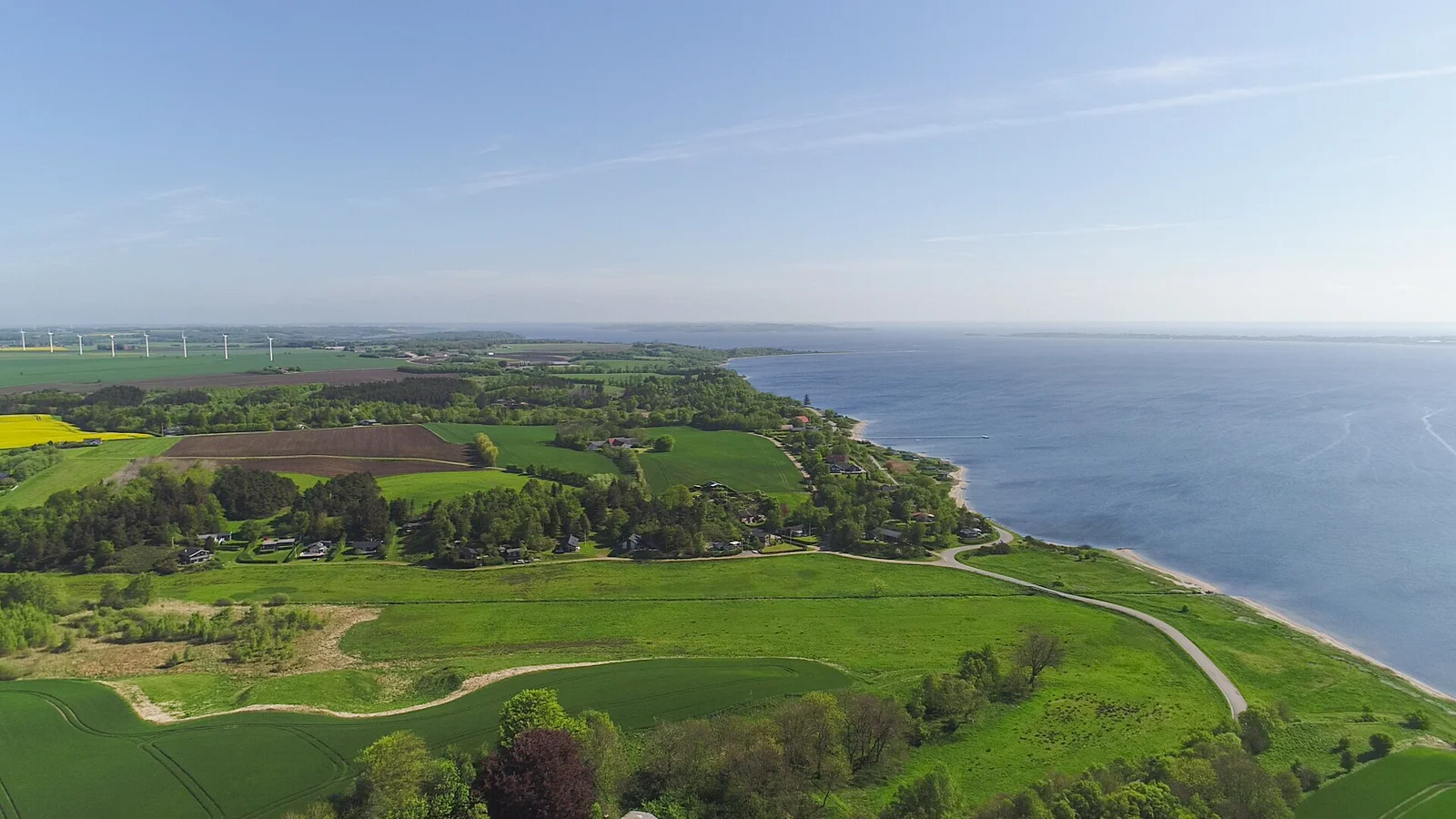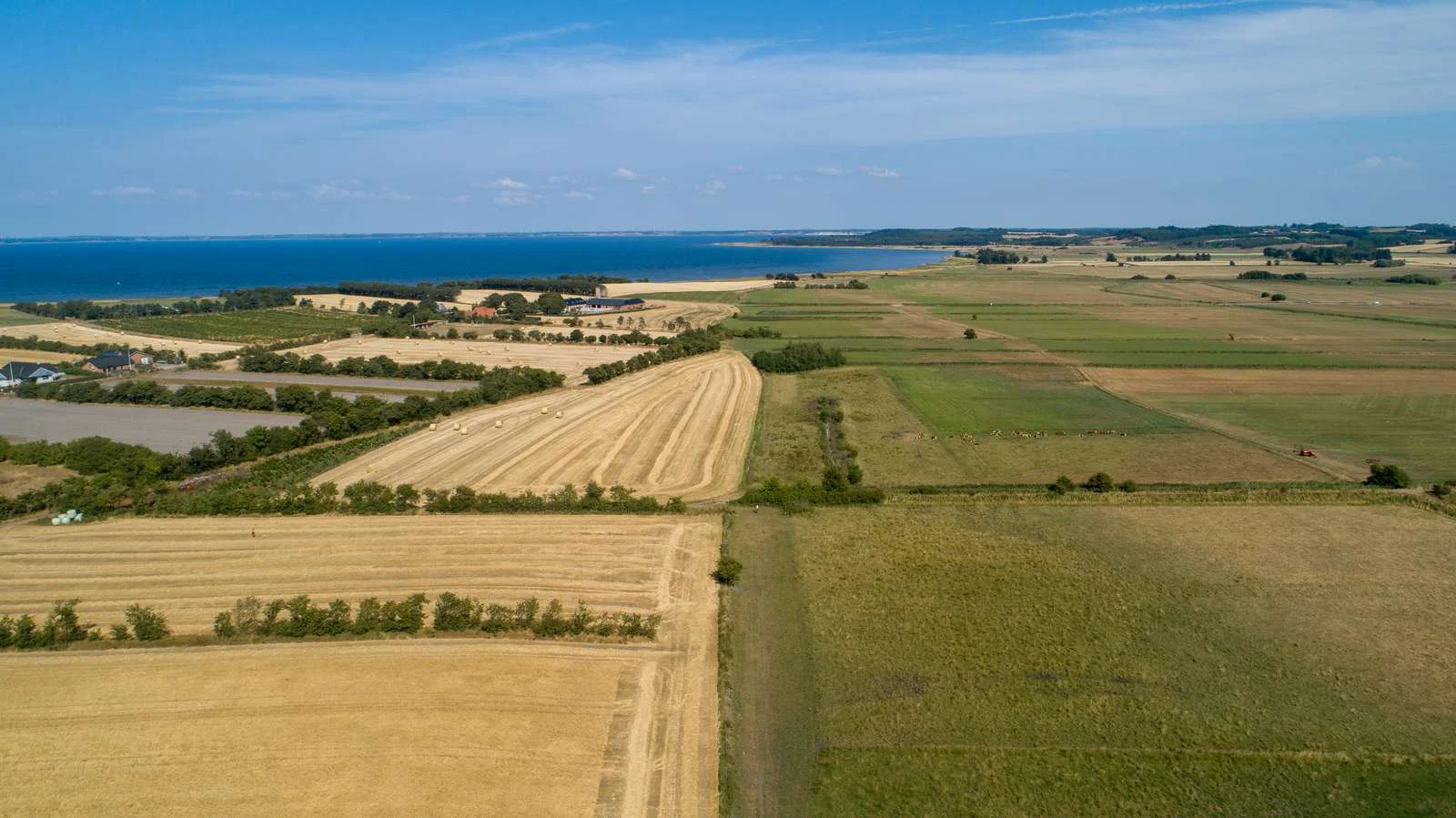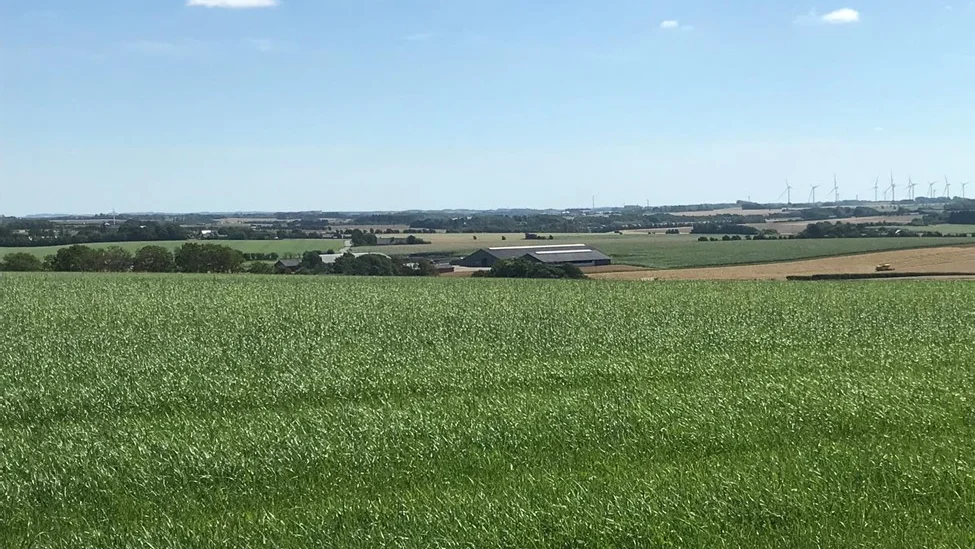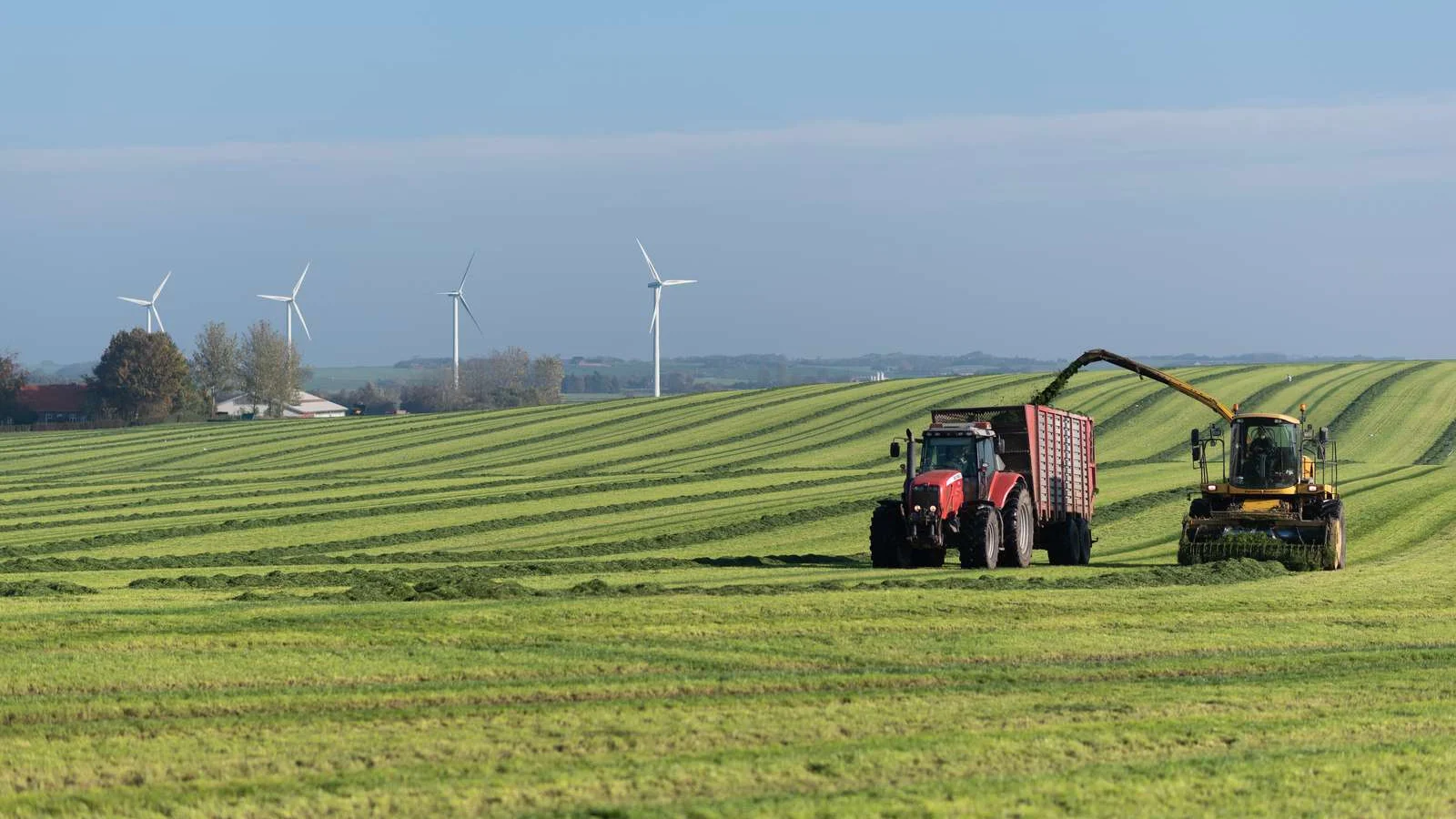Denmark
Description
The chosen Danish NBS site is situated in Northern Jutland and represents part of the Limfjord catchment, which connects the North Sea and the Kattegat and covers an area of 260,000 ha where approximately 63% is agriculture.
The land use of the NBS site resembles the average national land use. Furthermore, the site partly covers the national range of both biodiversity scores (0-16 score – where 20 is the highest at the national level) as well as N retention percentages (5-100%), which makes the site representative for the Danish region.
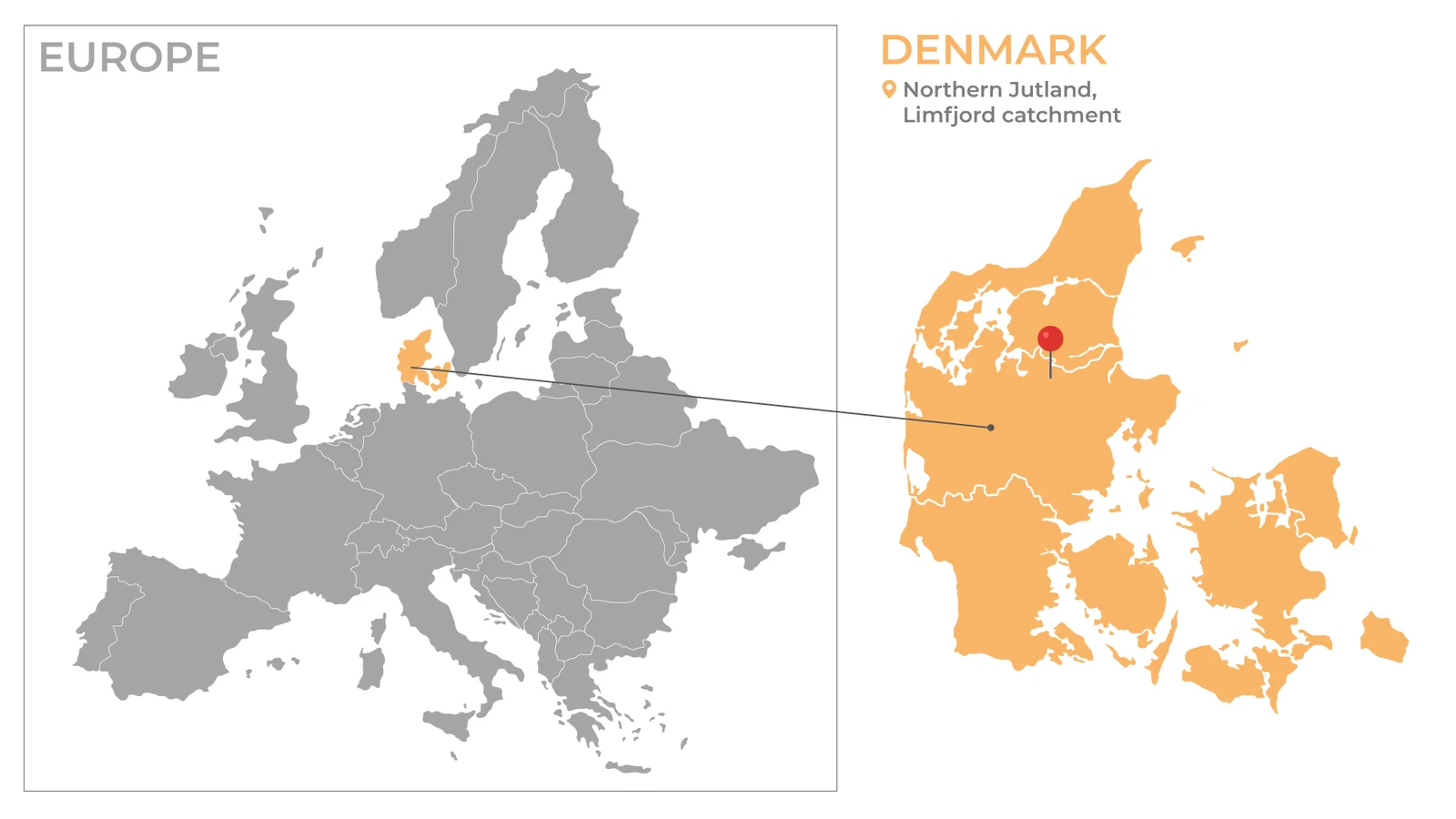
Challenges
With a national costal N reduction goal of approximately 13,000 ton N/yr by 2027, approximately 28% of this are to be reduced from the catchment surrounding the Limfjord and half of this should be reduced from the chosen NBS site (1500 ton N/yr). There is a need for a combination of measures and a higher level of stakeholder involvement if the goals are to be delivered. One solution of setting aside large amounts of agricultural land could compromise the economic profit of agricultural areas (Ørum et al., 2017), and are therefore not seen as a plausible solution. Therefore, innovative NBS that are targeted at individual catchments with the involvement of relevant stakeholders are needed for socio-ecological transformation.
The Danish partners will assess the NBS from systems approach thereby helping to define, monitor, and assess NBS effects at field/local, farm, landscape, and regional level - embracing the whole system.
trans4num NBS test site
For the Danish site trans4num selected two NBS:
- Changes in crop rotations (Circular and N crop-rotation) towards more biomass crops, including perennial crops, e.g. grass production and grass clover mixtures for biorefinery purposes to produce protein to feed monogastric animals and fiber for ruminants (Hermansen et al., 2017; Børgesen et al., 2018).
A replacement of cereal with grass will facilitate changes in field and crop rotations (local level) and influence farm nutrient balances, local climate accounts, and potentially benefit positive effects in surrounding nature areas and the aquatic environments such as the Fjord (landscape/regional level) (Odgaard et al., 2019b). Furthermore, other farm types using biorefinery products will also be influenced (system level).
- Biobased fertilizer from organic waste
Use of biobased fertilizers from manure and other waste streams in replacement of chemical fertilizers will increase the circular use of nutrients and potentially decrease N loss to the environment while enhancing the farmer’s profit.
Multimedia products
Video: Agroecology and the role of NBS Factsheet: DK NBS site Factsheet: Progress of the NBS implementation and testing in Denmark DK NBS Site - Insights from year 1 DK NBS Site - Insights from year 2 trans4num Practice Abstract: Regional scale satellite monitoring trans4num Practice Abstract: Circular Systems in Action trans4num Practice Abstract: From Grass to Value How can NBS support Danish farmers
Second year updates
trans4num continues to advance circular nutrient management through perennial crop rotations, bio-based fertilisers, and stakeholder-driven policy innovation in the Limfjord catchment.
1) Stakeholder Engagement
Cooperation between farmers, biogas facilities, biorefineries, and regulators intensified in 2025. A large stakeholder workshop, co-organised with Skive Municipality and GreenLab Skive, explored collaboration opportunities and regulatory barriers for circular bio-based systems.
2) New insights
Field testing confirms that grass–clover rotations reduce nitrogen leaching and sustain yields. Aarhus University’s nutrient-flow modelling demonstrates improved nitrogen balances and lower dependency on mineral fertilisers when bio-based inputs are integrated.
3) POLICY AND SANDBOX PROGRESS
With the support of trans4num, Climate Foundation Skive launched a regulatory sandbox in partnership with four Danish ministries. This initiative allows real-world testing of nutrient-management policies, helping to align environmental targets with economic incentives.
4) Next steps
The next phase will include testing the Decision Support Tool (DST) with regional stakeholders, analysing sandbox outcomes, and developing guidance on scaling nutrient-smart biorefining systems nationally. Stakeholders identify opportunities linking farming, bio-refineries, and renewable energy systems.
First year updates
In Denmark, the trans4num focuses on two main NBS approaches:
- Adjusting crop rotation: This involves incorporating more biomass and perennial crops, such as grass and grass-clover mixtures, into existing rotations. These crops can be used for biorefinery purposes, producing protein for animals and improving nutrient balances in the soil.
- Utilizing bio-based fertilizers: This approach emphasizes the use of organic waste streams, such as manure, to create nutrient-rich fertilizers. This promotes nutrient circularity and minimizes nitrogen loss, benefiting both the environment and farm productivity.
1) Stakeholder engagement
Interviews with key actors in the NBS value chain (biogas facilities, biorefineries, farmers and regulators) have been conducted. The information collected is guiding the future work and the planning of a major stakeholder workshop scheduled for Autumn 2024.
2) Preliminary findings
Preliminary findings that assess the economic and environmental impacts of the proposed NBS interventions suggest that incorporating more grassland into crop rotations could significantly reduce nutrient leaching and improve economic outcomes for farmers.
3) Regulatory Sandbox
Klimafonden Skive is working at engaging four Danish ministries to establish a regulatory sandbox, a controlled environment that allows for testing new regulations and policies. This will facilitate the implementation of necessary regulatory adjustments to support large-scale NBS demonstrations.
4) Next steps
The Danish NBS site aims to make a significant contribution to the development and implementation of sustainable agricultural practices in Denmark by promoting collaboration, using cutting-edge research, and engaging policymakers to build a more resilient agricultural sector.

